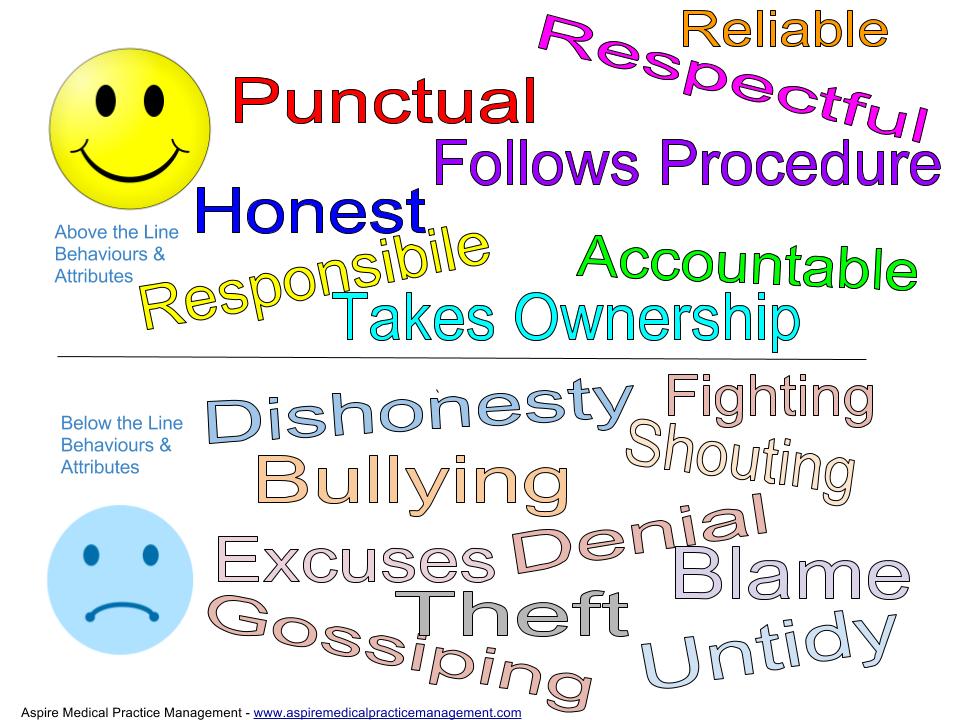Performance Management
The words performance management bring fear to many doctors and practice managers. Let's face it, GPs are trained to be kind and supportive to people in their doctoring role, and can find it hard to talk the hard talk to staff who are not performing well. For GPs and managers within a small business, it can be confronting to have to manage the performance of someone who you may work really closely with, especially if you know them at a more personal level.
Performance management can be done very badly, especially if it comes down to a big once a year session to pick on everything you haven't liked about the staff member all year.
Communication is the key to successful performance management - and it needs to be regular and constructive. If the staff member is doing something below the required standard, it should be pulled up right away, and not when you have a meeting in two months time. At all times the feedback should be given politely and respectfully, and this fosters an ongoing culture of open communication. Communication about performance should also be done in private.
The book "The Effective Manager" by Mark Horstman of Manager Tools, has some great advice about the importance of having regular one on one meetings with each staff member, so that you get to know your employees well. By having frequent two way communication about their progress on tasks, or issues they may be having to get work done, it means you are continuously working on improving their performance. You might still conduct a more formal review every six or twelve months, but there should be no nasty surprises for either party, because you have been communicating all along and know where things are at. For more info on conducting one on ones, you might like to check out Manager Tools website and listen to some of their podcasts.
The other important aspect of communication, is the written documentation you have within your practice, which sets the guidelines for how you want things done, and the way you want staff to behave. Do you have a code of conduct in your practice which sets out the behaviours that are acceptable and those which are not? Do you have comprehensive job descriptions for each staff member and do you have a good policy and procedure manual that does more than just sit in the corner gathering dust? These documents tell your staff what you expect, but also give you the basis on which to manage performance. You use them to train and tell your staff what you expect, and then if they underperform or behave badly, you have a reference point to bring them back to, and assess training needs against, so you can then plan for improvement. If it is not written down and readily available to your staff, they are likely to blame it on you for not telling them properly, when they do something wrong.
Having an above and below the line behaviour chart on the wall in a staff area, also isn't a bad idea to keep everyone on track. It can be a good team building exercise to create one together, and it may even help you to become aware of some behaviours which are worrying your team, if there is a common theme to suggestions for a below the line behaviour! You can download a copy of our above and below the line poster, if you would like to use it.
Occasionally I have heard managers say that they are tearing their hair out because someone's bad behaviour is making everyone miserable, but as the person is great at their job, they are reluctant (or scared) to do anything about it. Performance is not just about how they do the technical aspects of their job, it is about behaviour, and if they are disruptive, or upsetting other staff, then they do need to be pulled up and the bad behaviour needs to be addressed. They are not a star performer if they do a great job, but behave badly, and your other staff need to know that you expect good behaviour from everyone! Remember as a business owner or manager, you also have a legal responsibility to protect your staff from a bullying staff member. Did you know that Fairwork Australia also has some training videos on difficult conversations and managing performance? They might be worth a look sometime.
If you have an underperforming, or misbehaving staff member, and you have followed a fair process of providing feedback and additional training, but nothing has worked to improve the performance or behaviour, it may be time to seek independent expert advice. There are organisational psychologists who can assist you with difficult employment situations in the context of Australian workplace legislation. They can mediate difficult relationships, coach managers and owners to deal with these situations when you are unsure of how to proceed. It is important to seek legal advice if you think you may need to terminate employment. If you have a practice indemnity policy in place, some of these insurers have IR lawyers, who will be able to advise you as part of your policy. You may have a local legal adviser who you use, or there are some legal companies providing IR advice specifically to medical practices. If you are an AAPM member, discounted membership is available to AHIG, who specialise in this area. While 3 strikes and you are out is old law, you do need to be give a good reason and show procedural fairness when going through a dismissal process, to minimise risk of an unfair dismissal or discrimination claim.


